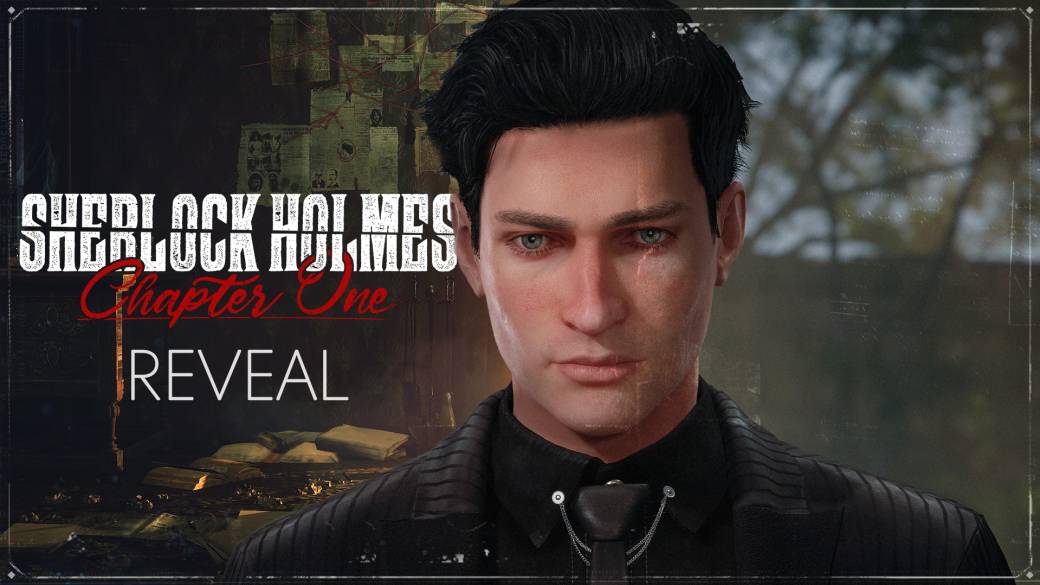
Interview with Sergey Oganesyan, producer of Frogwares, creators of the new Sherlock Holmes Chapter One.
Frogwares, parents of games like The Sinking City or others of the Sherlock Holmes license, today announced the arrival of Chapter One, the new video game installment of the famous detective. The game wants to offer an open-world experience with a strong narrative load and with elements such as research that go far beyond other recent titles. We chatted with Sergey Oganesyan, producer and head of communications for Frogwares, to detail a bit more what the planned title will offer for PC, PS4, Xbox One and next-generation consoles for 2021.
Sherlock Holmes has been closely linked to graphic adventures, why have you chosen an Open World type game? What does this decision offer?
Oganesyan: We've been making Sherlock Holmes games since 2002, so we know the limitations of staying on graphic adventures. The idea of playing with the world's most famous detective is appealing to a lot of people, making a third-person game and Open World a good way to make it feel more genuine and real.
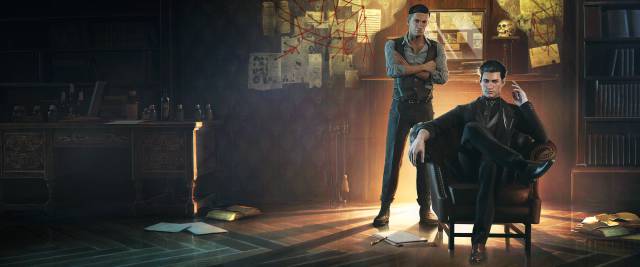
Something that enhances exploration …
An open world game means having less linear gameplay based on predefined events. It means that the player has to explore and discover clues for himself, more naturally as a detective than he is. The game is not going to tell you where or what to do, you need to think through the clues, the world and the characters to know what to investigate next.
Can you explain how the Global Investigation System will work? Is it similar to other famous investigation mechanics like in Batman, The Witcher 3 …
We are facing a much more complex system than others. Our game, as in others in the saga, revolves around the idea that you are a detective, so the investigation system is a key and main mechanic. We like to say that there is no system that takes us by the hand, it does not tell us what to do with mission marks, GPS points or icons that move at every step in our HUD. You need to use maps, information and intuition to think what to do next. We want the player to come to conclusions by himself, not because the game has told him where to go or what to do.
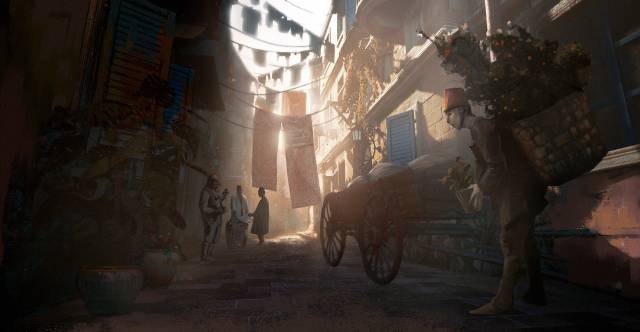
What mechanics do you use to achieve this purpose?
We give the world a lot of tools that together allow us to analyze tracks. Interrogations, costumes to get information from other characters that they would not normally give, a rumor system, a concentration mode to focus on certain clues and see how they fit with certain areas, draw drafts, crime scenes … They are some of the that we will have and that we will have to know when to use and when not. The game is not going to tell you.
Some example?
You're trying to find someone, you have some evidence that your suspect is left-handed. You can check this evidence (which means you tell the game you want to focus on it) and then when you go into focus mode, you will start analyzing the people around you based on that evidence. You'll see descriptions that tell whether someone is left-handed or right-handed, and if you find someone who matches the profile, you can approach him and ask him some questions. Some will not want to talk, so you may need a police costume. Once in this role, you can use concentration mode again to predict how people will react.
Can you have wrong deductions?
We're redoing the Mind Palace feature, which is an interface for deductions and clipping of clues to create a chain of events about what happened. But you can only create a chain of events with what you know, so there is the option of missing some important clue, reaching the wrong conclusion, following a wrong goal, and eventually accusing or punishing an innocent person. This is the objective we have, although we still cannot ensure that everything is integrated into the game as I define it, since the game is in development.
You define Sherlock Holmes as an open-world thriller. What balance is there between narrative and action?
It is an averted but condensed and more focused world when compared to The Sinking City. Our goal is for the player not to be around for a long time from one point to another, the idea is that the detective's experience in the open world is how to connect and interact with the world, people and cases. We do not want to create a sandbox with many activities such as running or fishing, there will be secondary, secret and collectible in any case.
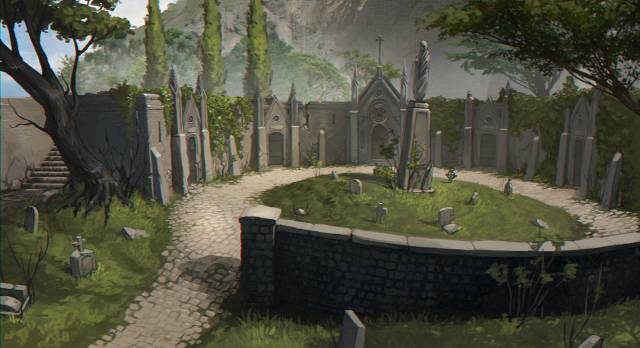
About combat, you talk about observation skills … Are they contextual actions? Strategize? It would be nice to know if there will be hand-to-hand combat, third-person shooter mechanics …
We are not prepared to explain too much of the combat, but we are prepared that the combat is created to reflect the personality of Sherlock Holmes, agile and arrogant. Able to disorient his rivals, punch them in the face and knock them down. It will be a dynamic but also unspoken combat, where we will have to prioritize which enemies to attack, change position often and use the vulnerabilities of rivals thanks to our environment. Long-range combat with some mechanics to knock out enemies.
Will there be stealth?
We are not working on stealth mechanics, at least for now.
The story centers on a 21-year-old Sherlock Holmes. Are you inspired by any specific work or by the success of these last times in the series?
Focusing on his youth is primarily a decision because books, series, and other adaptations do not cover this part of the detective's life. That allows us to create a story with more ideas and own creations. Our Sherlock is more volatile and arrogant than in the future. He is already brilliant, but he has to learn to control his emotions. You are more open to using the truth for your own benefit, and you see cases as a way to challenge yourself. He only aspires to be a detective, and the events during the game are what will shape the character. Of course, we have linked it with many elements of the lore present in the books; We know more or less what it will be like in the future, so we wanted to create an interesting story to explain how it became what we know.
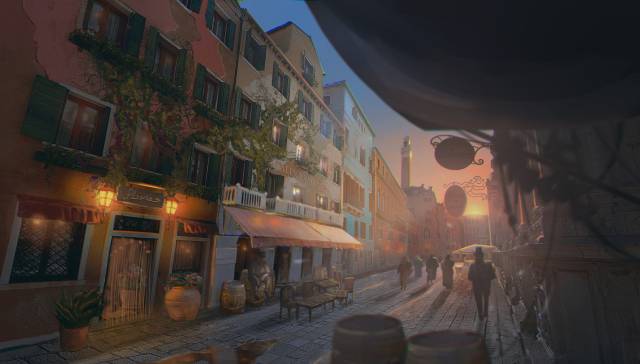
What can you tell us about Jon, his companion? That Watson is not there is a challenge I understand …
To be clear, Jonathan is not John Watson. In the original Sherlock Holmes lore they both meet as adults, and we don't want to alter this. Jonathan is Sherlock's best and only friend. He is not as smart nor does he have Sherlock's observational skills, but he makes up for it with bravery and loyalty. He has a good sense of humor and does not miss an opportunity to prick his friend. Your relationship and how it develops will be seen in the game.
What presence will it have in the game?
He won't always be with Sherlock, but we can call him when we need him. It will be an aid to investigations, can provide new points of view for the clues, draw a crime scene, highlight points of interest in the city … And of course, leave sarcastic comments. We're still working on the character and its mechanics, but it could be a character that ends up despising Sherlock depending on the player's actions.
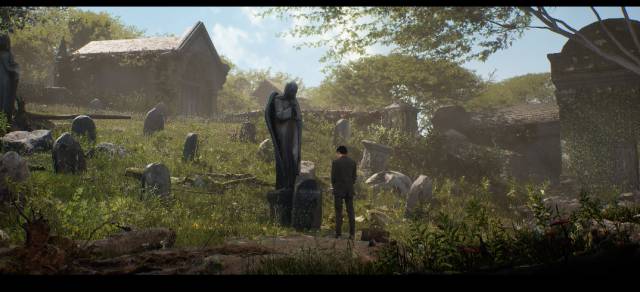
The game places the action on a Mediterranean island, away from Victorian London. Why? What are the strengths that you have defined for this location?
It is an advantage to choose an area that has not yet been explored with Sherlock. We can create something totally new and fresh compared to what most people already know. An island of our creation means that we dictate how its society is built, its functions and how they can influence the character. We can create our own lore and mysteries. Many people from many places live on this island, with their way of seeing justice and truth, and it is not always the same on the island. This makes Sherlock's work and moral decisions more complicated.
In addition, it gives us the option of being more varied in the environments. Victorian London is delimited by a type of architecture and buildings, with this we can make a multicultural city with many districts full of contrasts, something you cannot do with a London that has its own reality already established. That is why we have preferred the island and not real places like Paris, Cairo or Amsterdam. Finally, the structure of the island allows us to make a more credible and genuine open world.
Your previous game, The Sinking City, had inspirations from the Lovecraft universe. What differences will we find between this type of terror and what we will experience with Sherlock?
Both games have a dark and melancholic frame, although Sherlock's is probably closer to reality than the other. Lovecraft is about the hidden, the dark, creatures and powers that coexist with normal people in a broken and distorted universe. You can't look at a Lovecraft world and say it looks normal. In Sherlock's game, evil and darkness are confronted with a much closer reality: murders, corruption, robberies, lies, power … They are things that happen in our world and more important than unmasking them, it is like dealing with them. . We don't want Sherlock to be in a world defined by good versus bad, but just like in real life, there is a large grayscale based on people and their actions. We will have to make many decisions on this moral gray scale.
